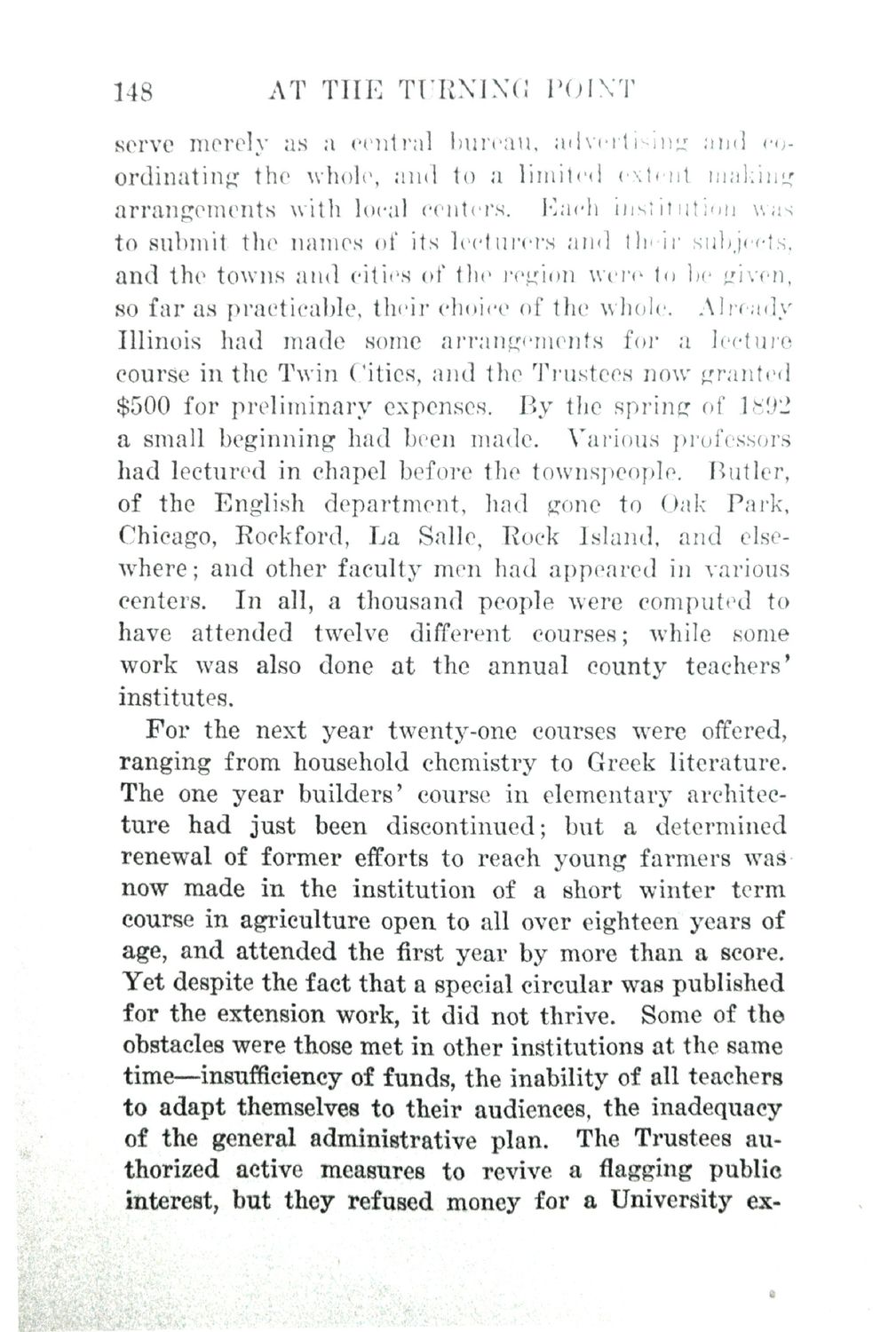| |
| |
Caption: Book - History of the University (Nevins)
This is a reduced-resolution page image for fast online browsing.

EXTRACTED TEXT FROM PAGE:
148 AT THE TURNING POINT serve merely as a central bureau, advertising and coordinating the whole, and to a limited extent making arrangements with local centers. Each institution was to submit the names of its lecturers and their subjects, and the towns and cities of the region were to be given, so far as practicable, their choice of the whole. Already Illinois had made some arrangements for a lecture course in the Twin Cities, and the Trustees now granted $500 for preliminary expenses. By the spring of 1892 a small beginning had been made. Various professors had lectured in chapel before the townspeople. Butler, of the English department, had gone to Oak Park, Chicago, Rockford, La Salle, Rock Island, and elsewhere ; and other faculty men had appeared in various centers. In all, a thousand people were computed to have attended twelve different courses; while some work was also done at the annual county teachers' institutes. For the next year twenty-one courses were offered, ranging from household chemistry to Greek literature. The one year builders' course in elementary architecture had just been discontinued^ but a determined renewal of former efforts to reach young farmers wasnow made in the institution of a short winter term course in agriculture open to all over eighteen* years of age, and attended the first year by more than a score. Yet despite the fact that a special circular was published for the extension work, it did not thrive. Some of the obstacles were those met in other institutions at the same time—insufficiency of funds, the inability of all teachers to adapt themselves to their audiences, the inadequacy of the general administrative plan. The Trustees authorized active measures to revive a flagging public interest, but they refused money for a University ex-
| |